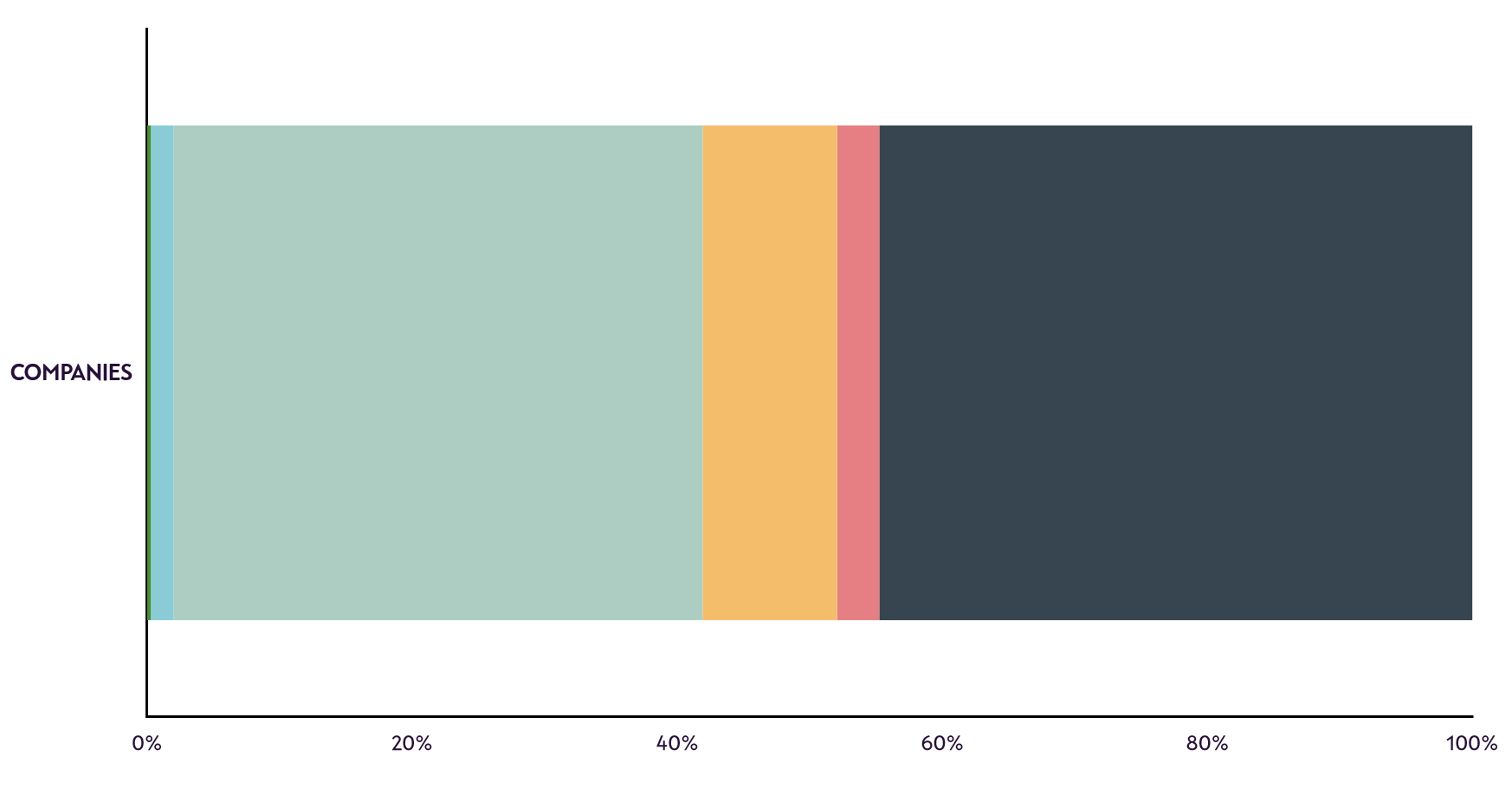Only two-fifths of the world’s largest 100 private firms (40) have net-zero targets, compared with 70 of the largest 100 publicly owned peers, according to Net Zero Tracker (NZT).
In addition, half (48) of the world’s 100 largest private firms have not set any emissions reduction targets, leaving some exposed to incoming climate regulations such as the CSRD and CSDDD.
The latest NZT analysis, A Distinctly Private Pursuit compares the readiness of major companies for incoming climate regulation. It shows a widening gap between the climate targets of the world’s largest 100 private companies, compared with their publicly-listed equivalents - creating an ‘unlevel playing field’ for companies, investors and policymakers alike.
John Lang, project lead, Net Zero Tracker (The Energy and Climate Intelligence Unit), said: “If ‘sunlight is the best disinfectant’ for climate inaction, most private firms are operating nocturnally — beyond the glare of the civil scrutiny, investor pressure and disclosure requirements faced by listed companies.”
The analysis reflects on the new EU Corporate Sustainability Reporting Directive (CSRD) and Corporate Sustainability Due Diligence Directive (CSDDD).
The CSRD requires about 50,0000 companies (both public and the largest private firms) to report their climate impacts, including value chain greenhouse gas emissions (Scope 3), and action taken to address them, from January 2025.
The CSDDD, once effective, is likely to require more than 5,000 companies (both public and private) to provide information on the integrity of their strategies for achieving net-zero emissions or other deep decarbonisation targets. Notably, the CSDDD is expected to require companies to have transition plans to take emissions to net-zero later this century.
Beyond the EU CSRD and CSDDD, the direction of travel is towards increasing climate regulation. For example, California’s Climate Corporate Data Accountability Act will require many large companies operating in the world’s fifth-largest economy to report both emissions and climate-related financial risks.
The latest NZT analysis builds on the earlier study, Everybody’s Business: The Net Zero Blind Spot. The 2022 study showed that under a third (32) of the world’s 100 largest private firms had carbon reduction targets, compared with over two-thirds 69 of the largest 100 publicly-listed companies. By comparison, in the last 18 months, net zero commitments have become a corporate norm for public companies. NZT revealed in November 2023 that half of the world’s largest 2000 public companies have net-zero targets.
© 2019 Perspective Publishing Privacy & Cookies









Recent Stories